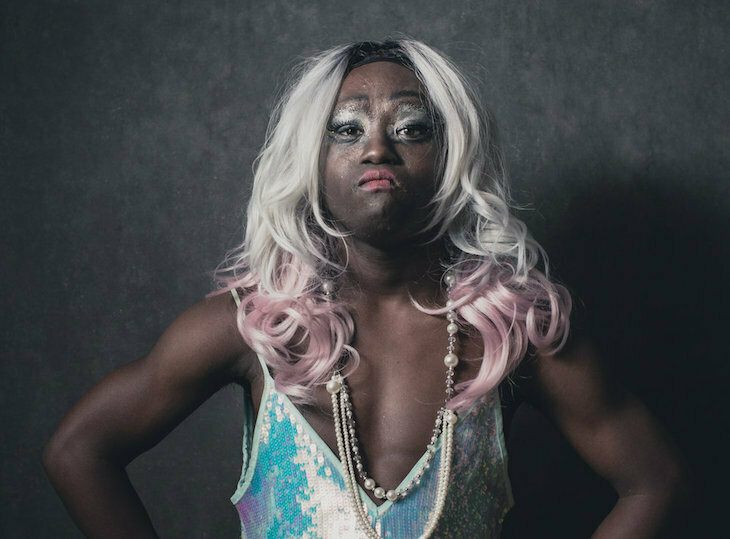
Liberty Festival is back in London this summer, celebrating the work of D/deaf*, disabled and neurodiverse artists.
The three-day event, which is free to attend, takes place at various venues across Lewisham — this year's London Borough of Culture — and is its largest incarnation yet.
In the spirit of the festival, access and inclusivity is a key feature of all events, including BSL-interpreted shows, audio-described installations, and relaxed performances with audience members free to leave and re-enter, tic and move around as needed. Quiet chill-out areas are provided for resting and relaxing.
New artworks, sensory walks, comedy, outdoor performances and films ate on the packed programme. We've picked out a few highlights.
New Yinka Shonibare work

Deptford High Street's pavement will be home to a new work by interdisciplinary artist Yinka Shonibare CBE — whose Nelson's Ship In a Bottle took over the Fourth Plinth in Trafalgar Square in 2010.
We don't yet know what the new artwork will look like, or what form it'll take, but it'll be audio-described, wheelchair accessible, and most likely a continuation of Shonibare's work exploring the idea of cultural identity.
New Yinka Shonibare work details.
Drag Syndrome

Performance collective Drag Syndrome consists of queens and kings with Down Syndrome, and has worked with the likes of Vogue, Ru Paul's DragCon and the Royal Opera House, demonstrating that people with Down Syndrome are as fierce, hardworking and professional as anyone else.
The current line-up (Horrora Shebang, Justin Bond, Lady Francesca, Nikita Gold, Lady Mercury, and Davina Starr) put on a show at The Albany, which is BSL interpreted with a live audio description.
Drag Syndrome performance details.
Touretteshero Stand-Up Comedy

Writer, performer and artist Jess Thom — who has Tourettes Syndrome and penned the book Welcome to Biscuit Land - A Year In the Life of Touretteshero — performs stand-up comedy in the guise of her superhero alter ego. Touretteshero is a free, 20-minute open-air show.
Touretteshero Stand-Up Comedy details.
Respira-Trees Walk
Environmental art intervention Respira-Trees uses special sensors to make air pollution visible. Join a walking tour through Ladywell Fields to see the trees glow as air pollution levels change, and join in discussions about the links between transport options, air pollution and health.
111

The title of show 111 is the number of vertebrae that dancers Joel Brown, who is paraplegic, and Eve Mutso, former principal dancer with Scottish Ballet, have between them. They pair up for a carefully-choreographed dance show, playing to each of their strengths. A touch tour is available just before the performance ,for visually impaired audience members.
These are just a small selection of the events on the programme — have a browse.
The Mayor of London, Sadiq Khan, said:
I am delighted that our Liberty festival is returning as a centrepiece of Lewisham’s year as London Borough ofCulture. The festival showcases brilliantly talented creatives from our disabled, D/deaf *and neurodiverse community. This year features an inspiring line-up of art, music, dance, theatre and stand-up comedy, providing our some of our very talented Londoners with an important platform to shine.
Liberty Festival 2022 takes place 22-24 July. It's free to attend, some events can be booked in advance.
*By modern convention Deaf with a capital D is used to refer to people who have been deaf all their lives, or since before they started to learn to talk. Lower case is for people who lost hearing later in life. According to deaf health charity Signhealth, "It is an important distinction, because Deaf people tend to communicate in sign language as their first language. For most Deaf people English is a second language, and understanding complicated messages in English can be a problem."




